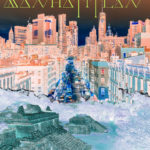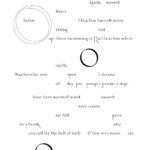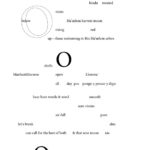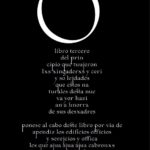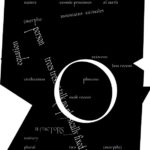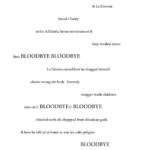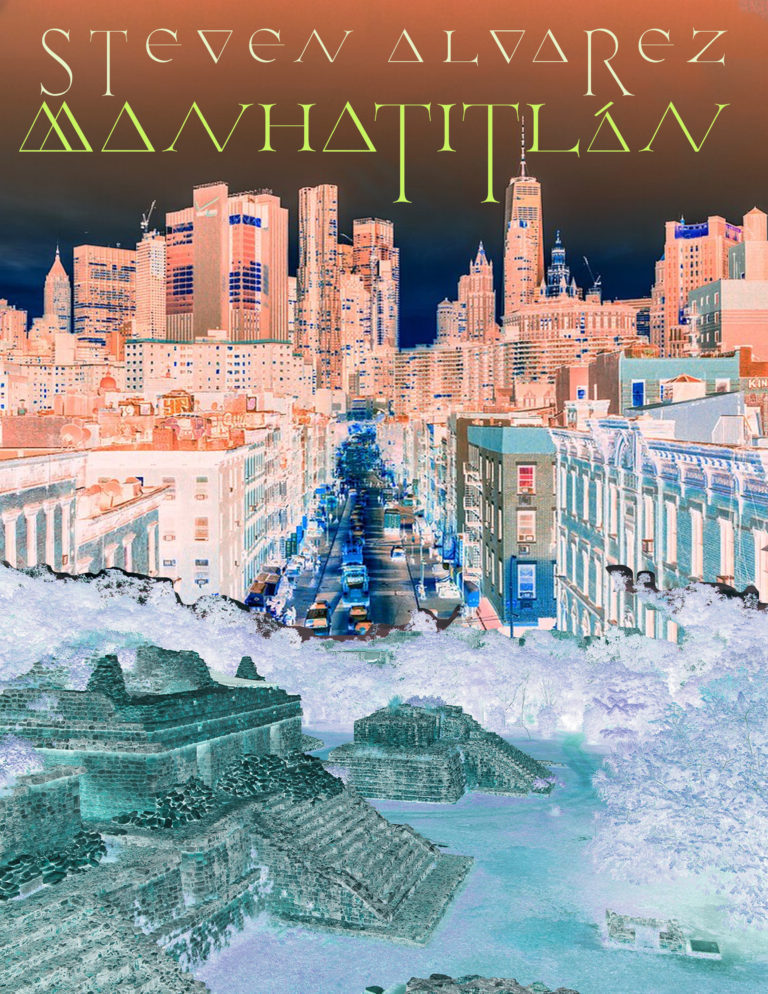
Humans
- Steven Alvarez (author)
- Elæ Moss (artist)
ISBN
978-1-946031-91-4LCCN
2021940413Page count
215Keywords
Poetry, Visual Poetry, Digital Design, Art, Symbols, Identity, Translingual, Spanish, English, Mexican Spanish, Mexico, New York, NY, NYC, Bilingual, LanguagePublication date
2021Language(s)
Spanish, EnglishPublication media type
Print DocumentHybrid
Translingual
Publication series
Glossarium: Unsilenced TextsManhatitlán
In the sequel to The Codex Mojaodicus, Steven Alvarez’s experimental Manhatitlán returns to the mythopoetic mode to build a network of layered rhythms, designs, images, languages, and voices, with the nodal point centered on Mexican New York City, past, present, and future. The novel in verse weaves narratives, histories, and stories into a slanguage chingazo straight to the panza.
“A citational landscape and the prismatic vernaculars of a self in constant motion, Steven Alvarez’ Manhatitlán is the ontological codex we need right now. This is a generative rupture from the tyranny of fragmentation of identity that instead incites a radical semantic potentiality of simultaneity. Alvarez creates a new vocabulary of understanding the ways a country is more than just a country but an ancestral seizure in the everyday life of a New Yorker–he who considers the border, its ellipses, and the lines by which he is crossed.” — Raquel Gutierrez, poet and author of BROWN NEON
“And so it begins, this blurb, as is only right, just as the book it seeks to crystalize, aware of itself. Cognizant of its own existence and this world’s obsessive demand of brevity, this blurb in the time it has left, will now attempt to capture the interest of you, gentle reader, for the immediacy of commerce, with tales of the Messican Desert, of Pancho at the wheel, of nortenos families forgotten, of La Llorona throwing two fingers up across the menace of the Amurikan cityscape of MANHATITLÁN. This blurb will now tell you that Steven Alvarez has here within these pages accomplished miraculous dread and wonder, the feel of foreign giving way to the sense of a Metropolis that could be trampled any moment under the weight of ancestral claim. Alvarez knows there is pain and power in the renaming. And so it the blurb ends attaching its dreams of annals and posterity to the contents of these pages, just another Amurkin tale from MANHATITLÁN.” — Matt Sedillo, poet and author of Mowing Leaves of Grass
About the Contributor(s)
Steven Alvarez is the author of The Codex Mojaodicus, winner of the Fence Modern Poets Prize. He has also authored the novels in verse The Pocho Codex and The Xicano Genome, both published by Editorial Paroxismo, and the chapbooks, Tonalamatl, El Segundo’s Dream Notes (Letter [r] Press), Un/documented, Kentucky (winner of the Rusty Toque Chapbook Prize), and Six Poems from the Codex Mojaodicus (winner of the Seven Kitchens Press Rane Arroyo Poetry Prize). His work has appeared in the Best Experimental Writing, Anomaly, Asymptote, Berkeley Poetry Review, Fence, MAKE, The Offing, and Waxwing. Follow Steven on IG @stevenpaulalvarez and Twitter @chastitellez.
Elæ Moss is a multimodal artist-researcher, curator, designer, and educator. Seeking Speculative Solidarities, they employ analog and digital media to investigate human, institutional and ecological systems and to iterate open source strategies for ecological and social change. Recent projects have shown at La Mama Galleria, EFA Project Space, STWST/Ars Electronica, Usdan Gallery, Judson Church, the Segal Center, SOHO20, Dixon Place, and the Exponential Festival, among others. Select publications include Big Echo, Tagvverk, Vestiges, Matters of Feminist Practice, The Transgender Narratives Anthology, Choice Words: Writers on Abortion, The Brooklyn Poets Anthology, and Resist Much, Obey Little: Inaugural Poems to the Resistance. Books include Ground, Blood Altas, Overview Effect, Sweet and Low: Indefinite Singular, Bodies of Work, and The Precarity Bodyhacking Work-Book and Guide. Moss is a Professor at Pratt Institute, and the developer / founder of the Operating System + Liminal Lab. More at: https://onlywhatican.net and https://theoperatingsystem.org.


